
Celebrating the First Hub Fellowship Cohort: Empowering Local Networks for Global Change
A reflection from Joyce Nyaboga and Beth Gathoni as we conclude this inspiring year with the Hub Fellowship Programme.
Published:
Time to read: 4 minutes
As we conclude this inspiring year with the Hub Fellowship Programme, we celebrate the journeys of nine remarkable fellows from five hubs—DRC, Guatemala, India, Somalia, and Pakistan—who formed the inaugural cohort of this program.
The hubs are evolving as locally led networks, developing a contextualized humanitarian systems change agenda. This aligns with the Start Network's vision for a decentralized and proactive humanitarian system. The hub development process is guided by a co-designed partnership approach, navigating five key phases: realization, formation, incubation, maturity, and interdependence. During these phases, hubs define their vision, mission, systems change agendas, operational frameworks, and paths to sustainability.
At the heart of this process is the secretariat team, managed by local leaders to ensure functionality and foster effective partnerships. These secretariats are responsible for coordination, communication, partnership engagement, strategy implementation, reporting, advocacy event organization, and resource mobilization. Start Network supports these secretariats with a co-designed service offer tailored to their specific developmental phases and contexts, aiming to establish them as sustainable local networks.
In 2023, the hubs jointly co-designed the Hub Fellowship Programme with the overall goal of enhancing the capacity of secretariat teams to lead their hubs toward sustainable development. The programme incorporated skills development through trainings, mentorship, creative learning, hands-on assignments, and exposure to best practices. Our inaugural cohort of nine fellows engaged in projects that directly applied their learning, focusing on partnerships, systems change, resource mobilization, strategic leadership, advocacy, and communications.
The first fellowship cohort, themed “Unity in Action,” highlighted the importance of vision, trust, engagement, connection, and direction in driving local networks. Key sessions provided foundational skills in partnership brokering, systems change, communications strategies, advocacy messaging, and resource mobilization tactics.
Feedback from the fellows has been overwhelmingly positive. As Revathi described, the fellowship provided her with a "compass to navigate a thick forest." The power of peer-to-peer learning was evident, with experiences from one hub shaping solutions for another.
Furthermore, each fellow in the program worked on a project designed to help them apply and strengthen their skills. These projects were aligned with the core themes of the fellowship, which focus on key areas such as Partnership, Advocacy, Communications, Resource Mobilization, Systems Change, and Learning. By centering their work around these themes, the fellows not only gained practical experience but also contributed to advancing our collective goals in these critical areas. Below are some of the projects from each fellow:
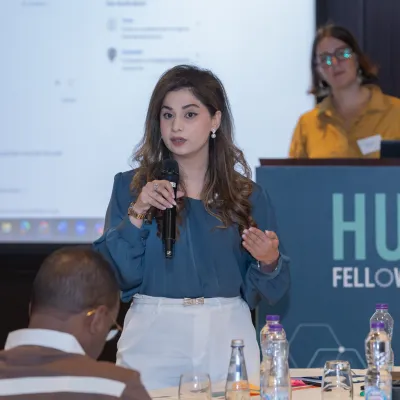
Nadia created a booklet to showcase the importance of locally-led anticipatory action in addressing climate change and building resilience in vulnerable communities.Nadia Zafar, Ready Pakistan Hub
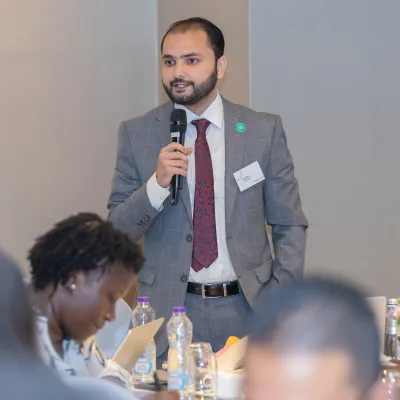
Wisal designed a communication strategy tailored to the hub's context, providing clarity on values, strategy, and approach for both internal and external stakeholders.Wisal Khan, Ready Pakistan Hub
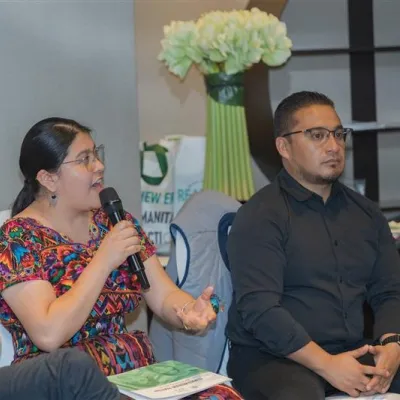
Alejandra and Rodolfo focused on putting together a resource mobilisation approach for their hub that is sustainable. They are building a team that has the capacity to mobilise resources and use them effectively.Lourdes Alejandra Atz and Gerson Rodolfo Guitz, Guatemala Hub
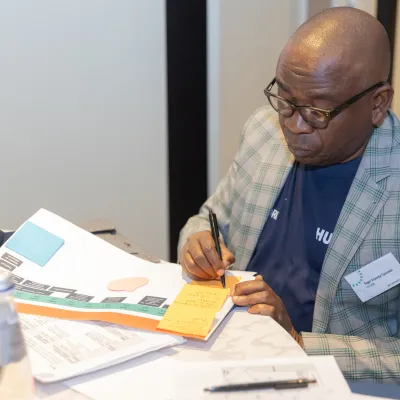
Rojer focused on strengthening the accountability and engagement mechanisms within the hub. To do so, he has run a survey across members to understand their perception, motivation, and feedbackRojer Kayenga, DRC Hub
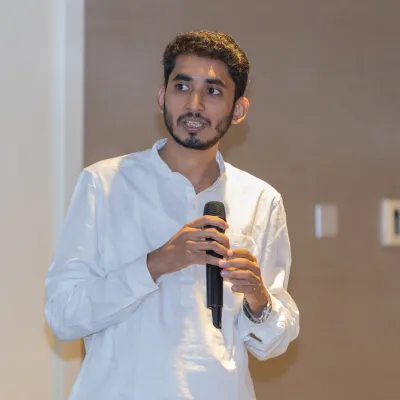
Surojit has developed a hub partnership framework that will guide the hub in engaging strategic partners and strengthen its role across India.Surojit Sarmah, India Humanitarian Hub
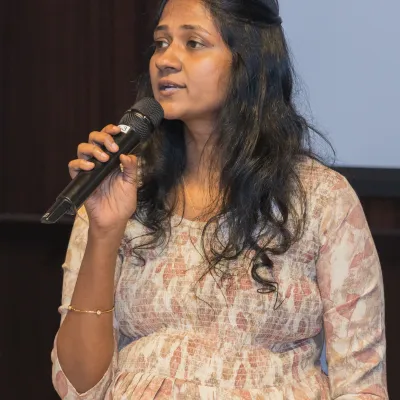
Revathi developed a communication protocol to provide clarity to members and the team on how to work together.Revathi Ramkumar, India Humanitarian Hub
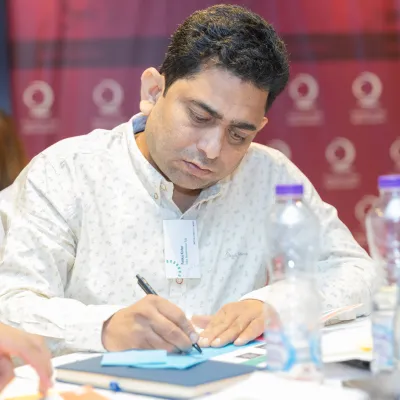
Pankaj developed an approach to mobilise resources from the private sector specifically, to overcome barriers to accessing donor funding. He has developed materials and will participate in relevant events.Pankaj Kishor, India Humanitarian Hub
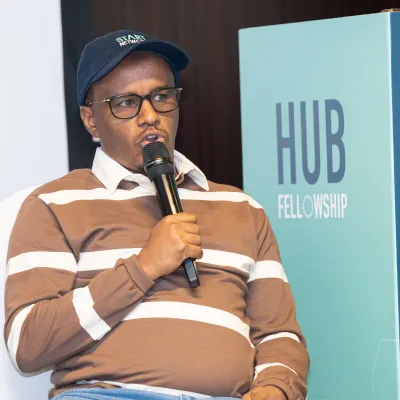
Albashir focused on developing an approach for resource mobilization for the hub.Albashir Adan Ibrahim, Somalia Humanitarian Hub
The fellows presented the above projects during our in-person meeting held in Doha from 23rd – 26th September, where they received valuable peer feedback. This collaborative session aimed to support each fellow in implementing their projects within their respective hubs, ensuring that the hubs benefit from their newly acquired knowledge and skills.
The insights gained and the connections made throughout the year will undoubtedly contribute to the development of the hubs, reinforcing the Start Network’s commitment to a locally led humanitarian system.
Join us in celebrating the achievements of our fellows and the ongoing journey of the Hubs!
